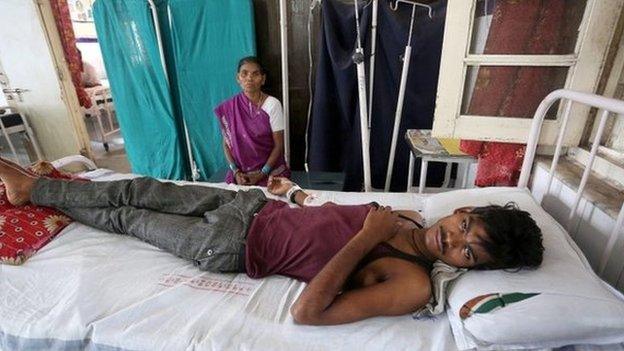Heat wave in India: Frustration, rumours and memes
- Published

Indians have taken to social media to vent their frustration at the ongoing heat wave, with the mercury soaring on Thursday to a record-breaking 51 degrees Celsius.
Many are complaining that the government is not helping by enforcing power outages as a way of dealing with the unprecedented rise in demand for energy.
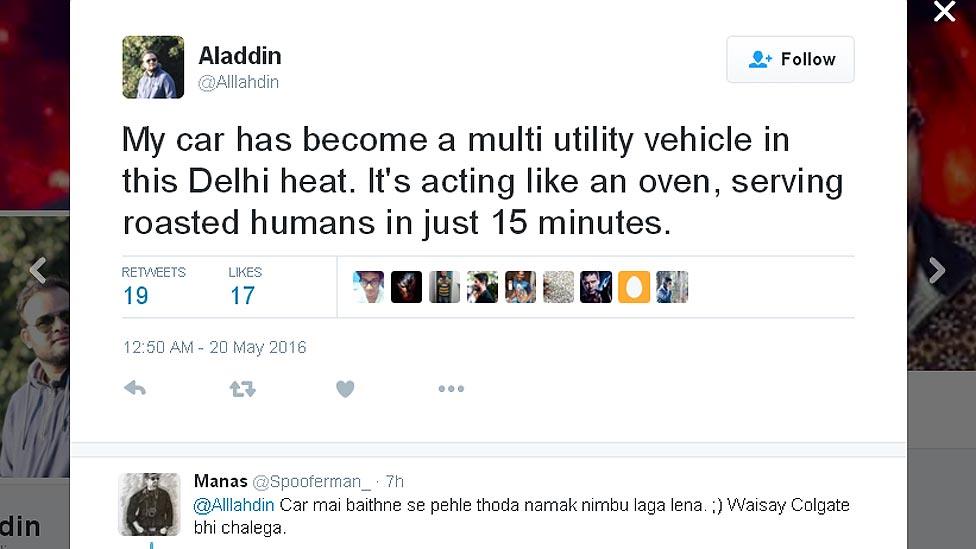
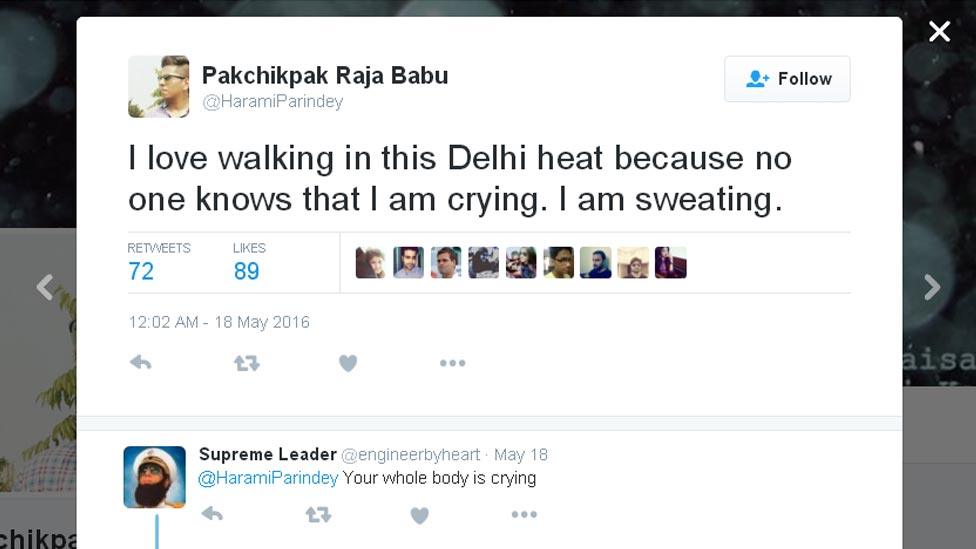
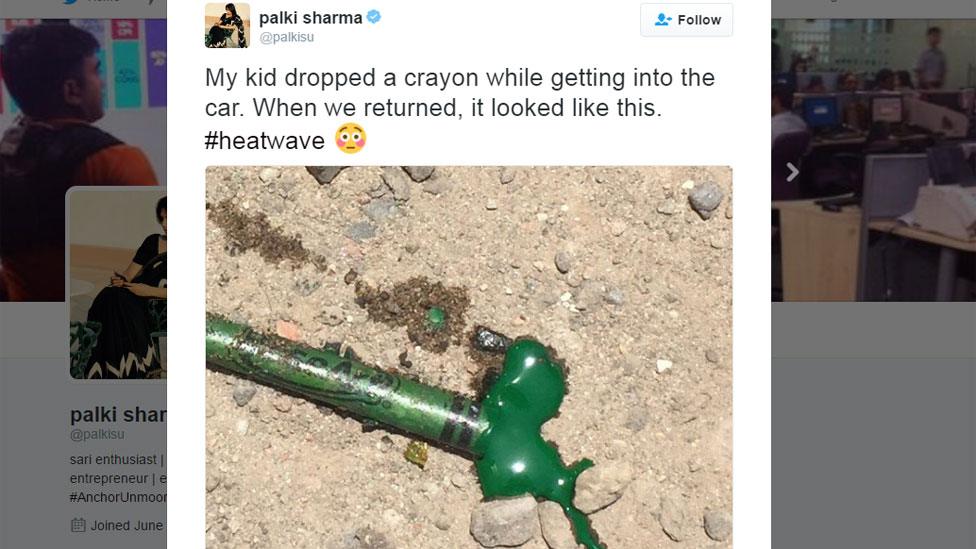
"In the past 12 hours - barely six with electricity," tweeted one user. "This is the national capital during a summer heat wave. Thank you Delhi Govt."
Another criticised the opposition for stopping a bill on afforestation - planting forests or trees where there were none before - in the midst of the heat wave, saying it was one way to fight global warming.
Users on the image-sharing app Snapchat have also been using the app's temperature filter in "temperature-offs" - a show of one-upmanship to highlight the heat in their respective cities.
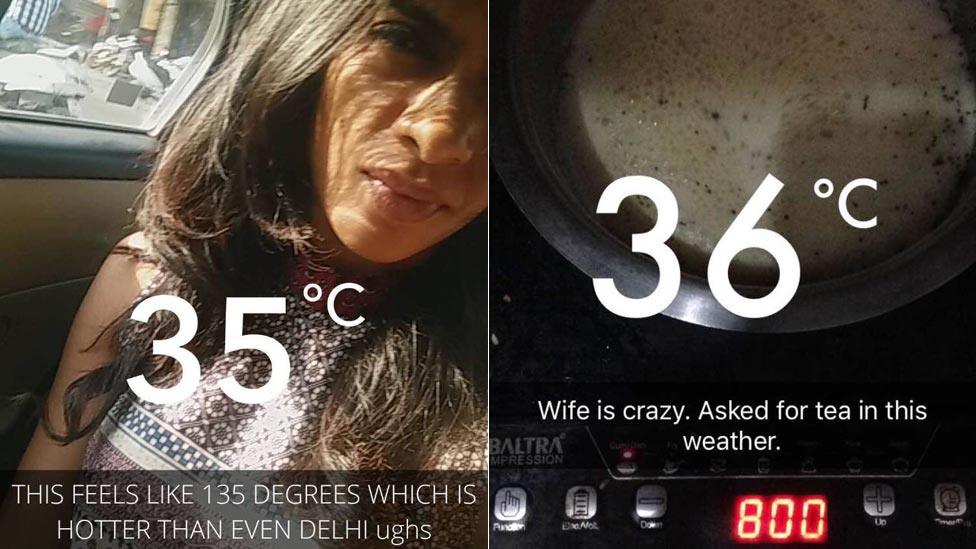
Snapchat's temperature filters have come in handy
Taking precautions
Media stories and messages forwarded on WhatsApp are telling people to take precautions in the heat.
Messages on Whatsapp are highlighting the Meterological Department's weather alerts denoting heat wave and severe heat wave conditions and accompanying them with advice to drink at least six to seven litres of water to counter the heat.
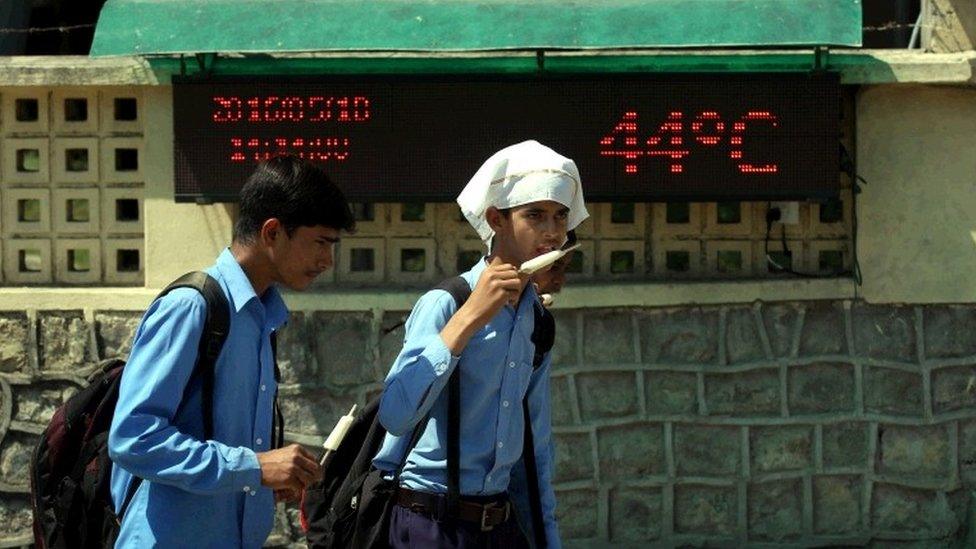
Ice lollies and cold drinks are popular
News websites are sharing tips on keeping rooms cool - by placing half-filled buckets of water in them, for example - as are users on Facebook and Twitter.
But it is not only sensible advice circulating on social media. Rumours of a so-called "equinox phenomenon", causing high temperatures for five to seven days, have also surfaced - just as they did to accompany a previous heat wave in March, when they were debunked as a hoax.
And the heat wave has seen the generation of a few innovative memes. One has someone asking God what he is cooking and he replies, "Delhi". Another is a cartoon showing a man asking the Indian monkey god, Hanuman, to swallow the sun again - a reference to a story whereby Hanuman, as a child, mistakes the sun for a fruit and eats it.
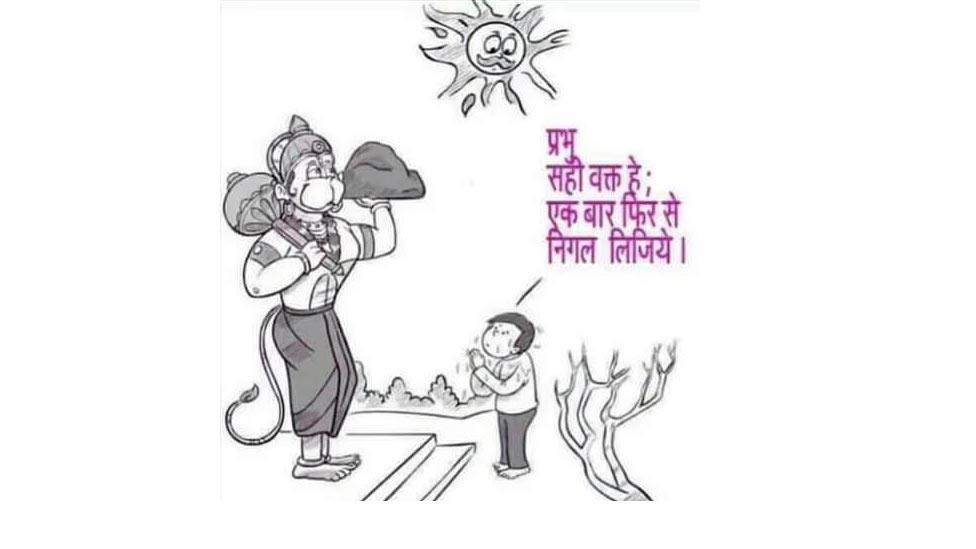
One of the memes circulating in response to the heat: "Lord the time is right, please swallow it again"
BBC Monitoring reports and analyses news from TV, radio, web and print media around the world. You can follow BBC Monitoring on Twitter, external and Facebook, external.
- Published20 May 2016
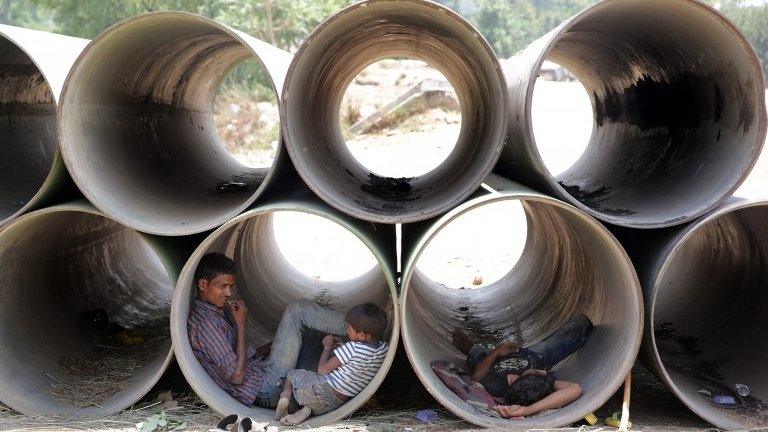
- Published8 April 2016
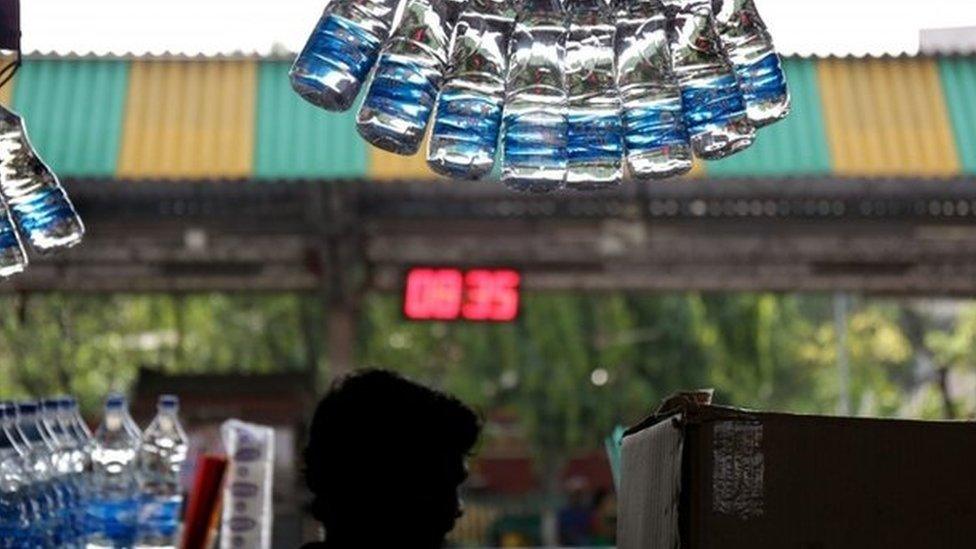
- Published29 May 2015
